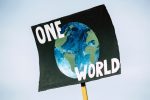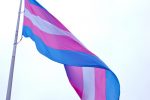Social Media, AI And The Christian
Aug 24th, 2024 | By Dr. Jim Eckman
It was nearly 25 years ago that my son Jonathan and I watched the movie The Matrix. (I actually needed to watch it several times to grasp the complexities and underlying messages of the movie.) Meir Soloveichik, Director of the Straus Center for Torah and Western Thought at Yeshiva University and rabbi of Congregation Shearith Israel in New York, zeroes in on the key scene of the movie: “A man named Morpheus sits across from another man named Neo and informs him that his entire notion of reality is a lie. If Neo wishes to know the truth of human existence, Morpheus says, all he has to do is choose one of two pills. ‘You take the blue pill—the story ends, you wake up in your bed and believe whatever you want to believe. You take the red pill . . . and I show you how deep the rabbit hole goes’ . . . Of course, Neo chooses the red pill and learns the terrible truth that the advent of artificial intelligence allowed machines to take over the Earth. He believes it is 1999, but in fact it is 2199, and all human beings are perpetually asleep in vats, exploited by their AI masters as a source of energy. The world they think they experience is actually a virtual reality known as The Matrix.”









